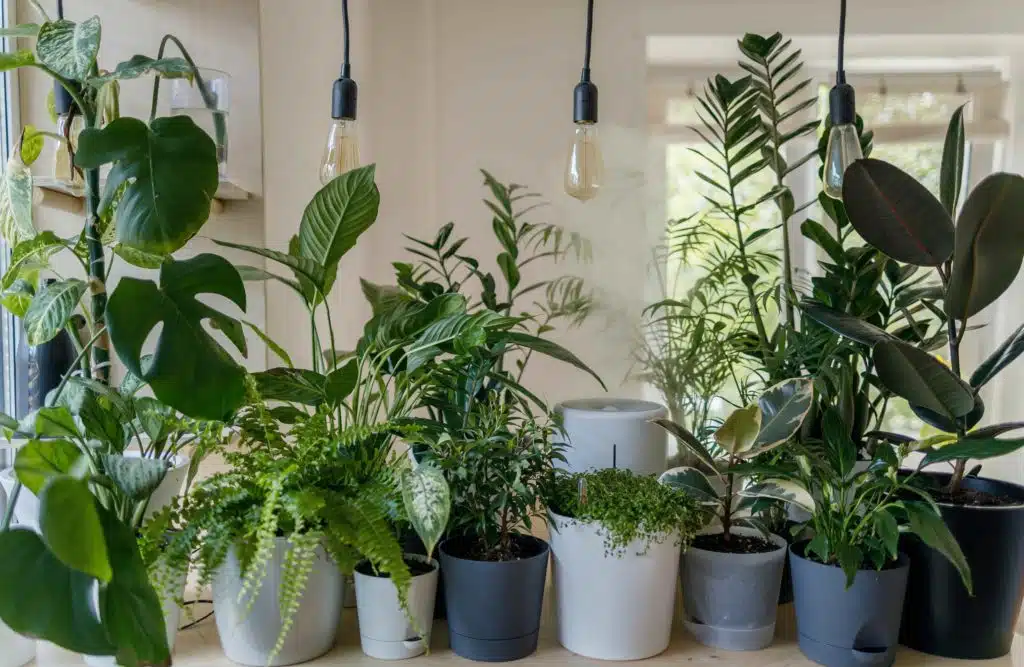Making your business more sustainable reduces your impact on the environment and cuts costs for your company. As well as this, it positively effects your brand identity, as most people would prefer to buy from a sustainable brand, even if it means paying a little more. Generation Z (up to 23yrs old) shoppers prefer to buy from sustainable brands, with most prepared to spend 10% percent more on sustainable products (Forbes, April 2021).
Purposely positioning your brand as eco-friendly and planet conscious will aid in attracting new customers and ultimately improve retention rates. Sustainability initiatives can and should be embedded within the business strategy and worked into a wider marketing plan. The planning, budgeting, resourcing and day-to-day operations should be mapped out on a Gantt chart or timeline.
Here are five, easy to implement, sustainability initiatives to consider this year.
1. Create Goals
Firstly, it is important to research the different ways that you can make your business more sustainable, which will allow you to identify key priorities to focus on. It is important to set a budget in order to see how much money you can dedicate to making these changes.
Set short- and long-term goals. Short-term goals will involve sustainable changes that are affordable and attainable on a monthly basis, and therefore more budget friendly. Long-term goals will involve larger scale sustainable changes that you can plan to implement in the future. The key is to be realistic and weigh-up ambition with affordability.

2. Source Sustainably
A priority for your business should be to source sustainably, it is your responsibility to be aware of who is sourcing your products and where they are coming from. It is valuable for customers to know that you pay attention to your suppliers, such as sourcing products locally rather than sourcing from brands overseas, where staff need to be treated ethically and the negative effects of the shipping process are immense.
It will boost your reputation to be mindful of the brands that you associate with. Partnering with brands that are not considering the environmental impact of their business, can be damaging to your own brand image. Sourcing local products will also come with economical advantages for your company as it will cut shipping costs. With all of this considered, your business can benefit the environment even further by cutting down the use and purchase of plastic products, whether products that you sell or items used around the office.
3. Choose Eco-friendly Packaging
Following on from this, if your business sells products to consumers, it is important to use eco-friendly packaging. If your product packaging uses a mix of materials such as two types of polymers, it will not be recyclable. Companies often use more packaging than is necessary so cutting this down will benefit the environment as well as your budget. The switch to smaller, lighter, biodegradable packaging materials such as biodegradable packing chips, which are a great way of keeping your product in good condition whilst reducing waste, will reduce the overall delivery cost. According to Sage, 50% of British consumers would choose an eco-friendly packaging option at a higher price. So being conscious of the way you package your products and the materials you use, will boost sales as consumers want to buy from obviously sustainable brands.
4. Create a Green Space
Creating a green space in your office comes with many advantages. Plants naturally purify a room’s air and regulate the humidity, temperature and noise levels. Plants can also lower the temperature by ten degrees, meaning that companies can save on air conditioning costs. If your office has outdoor space, you can expand your green space by growing plants and herbs. As well as benefiting the environment, plants improve employee mental wellbeing by making people feel relaxed and decreasing anxiety levels.

5. Use Technology Efficiently
As a business, it will save you a lot of money to ensure that you are using your technology efficiently. For example, making sure that at the end of each day all the lights are switched off, computers are completely shut down rather than being on standby, and the heating is off can all make a significant difference to the environmental impact as well as office costs. Long-term sustainable office features and initiatives include smart bulbs, going paperless and installing solar panels. While these options can be expensive, solar panels for example will typically cut electricity bills by 15-25%, according to The Energy Saving Trust.
These five steps will ensure that you continue to be a sustainable company, protecting the environment in a cost-effective manner, while simultaneously building on your brand identity and reputation as a planet friendly business.
If you want to develop a new marketing strategy, get in touch with our team today by emailing customerservice@mackmangroup.co.uk or calling 01787 388038.
